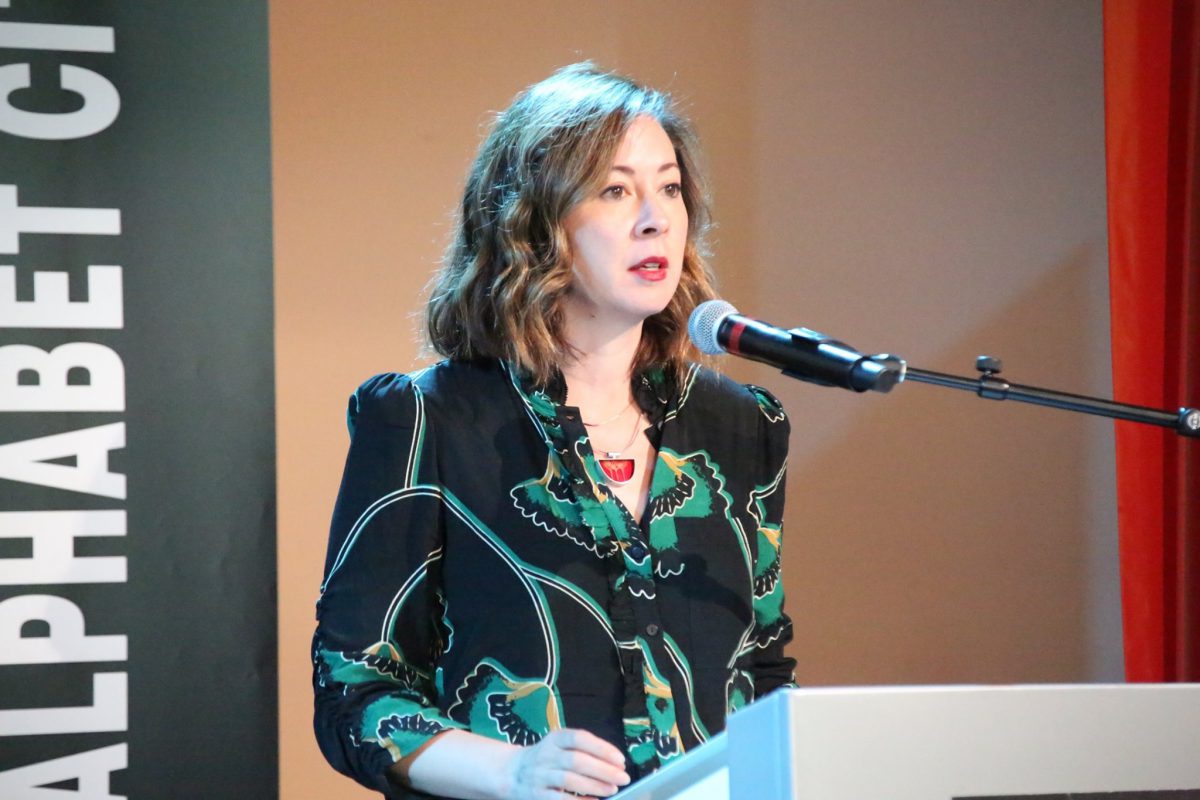Utah Poet Laureate Paisley Rekdal ended her five-year term this month. Her service to our state has been wonderful, and our agency would like to thank her for her extraordinary work throughout her term. She wrote a terrific post on her social media accounts recently, summing up what she did while she was poet laureate. Check it out below.
From Paisley’s social media:
“This week marks the end of my five-year term as Utah’s poet laureate. Before I step down, I want to answer the most common question I got during my term: What does a poet laureate do?
We do public projects! Mine was #mappingliteraryutah, a web archive of Utah writers past & present. I archived over 225 poets, novelists, essayists, storytellers, & slam poets. There are videos, essays, and interviews on the site: check it out here: www.mappingliteraryutah.org
I also wanted to connect Utah poets together, and to celebrate Utah poets and poetry so, along with the fabulous @megastore, Kimberly Johnson, @JenniferTonge and @NatashaLSaje, I helped start and run three Utah Poetry Festivals. Craft talks! Readings! Workshops!
And speaking of workshops, we do those! Lots and lots of community workshops, K-12 class visits (I kept telling students we were playing games, not writing poems), conference visits, lots of judging of Poetry Out Loud events. On average, I did about 50-65 events a year.
We get public commissions for poetry. I had several, but the big one was writing a poem for the 150th anniversary of the transcontinental railroad, which I also turned into a digital poem/website called WEST, which you can play here: www.westtrain.org.
I also wrote a poem for the Salt Lake County mayor’s vaccination program, in celebration of the county’s volunteers. Remember those 15 minutes of happiness we all had when the vaccines first came out? How hopeful we all were? Yeah. That was a fun week.
And speaking of Covid (which I am recovering from, even after all the shots), we got creative about getting poetry to people during the pandemic. After all my school visits were canceled, I sent copies of Best American Poetry to random Little Free Libraries around the state.
We also do cool interdisciplinary projects or readings with other artists and writers! I got to work with @tonysolitro to write the libretto for a one-act opera, and I also got to appear with David Henry Hwang (!!!) during the Spike 150 celebration of the transcontinental.
We also give speeches. So many speeches. You don’t want to know about the speeches. But the gist of all these speeches is this: Poetry is one of the great joys of being human. It’s cultural memory itself. Let’s all try not to hate it so much, shall we?
A lot of people think being a poet laureate is about you and your poetry, but it isn’t. It’s about finding out something that might make your community incrementally happier, and doing that for them.
It’s about getting more attention to the other poets and writers in your community, so that people can see the depth and variety and vibrancy of the artists that surround them.
It’s about showing students they can be writers, too. I still remember the goth girl who came up to me after class, practically vibrating from clove cigarettes, who said, “You write books? I’m going to write books, too.” And I said, “YEAH, you are.”
And I remember the fourth grade ESL student who, when I told her she wrote the most beautiful poems during our class–because she did–glowed and glowed and glowed, and couldn’t stop raising her hand in class to speak because, for once, she got to be the star.
And I remember the biracial soldier I met at a workshop, with whom I shared Natasha Tretheway’s “Enlightenment,” and how I got to see that woman’s face light up as she saw something of her own life written down by someone who understands it. https://www.poetryfoundation.org/…/enlightenment…
That’s what it’s like to be a poet laureate: you get to do all that for people. You get to make other people excited, or happy, you get to give people the art that makes them feel seen, you get to be USEFUL to people, which is an opportunity very few of us get in life.
And of course, this can’t happen without other people and orgs helping. So thank you Alyssa Hickman Grove and @UtahArtsMuseums, thank you Willy Palomo and @utahbookfest, thank you @MellonFdn and @POETSorg for a grant that made most of my work possible.
Thank you, Max Chang and Spike 150 for an opportunity of a lifetime, and thanks to @GovHerbert for selecting me 5 years ago. And finally, thanks to all the teachers, students, writers, and poets in Utah. I am humbled by your gracious fellowship. It was my privilege and honor to serve.”

